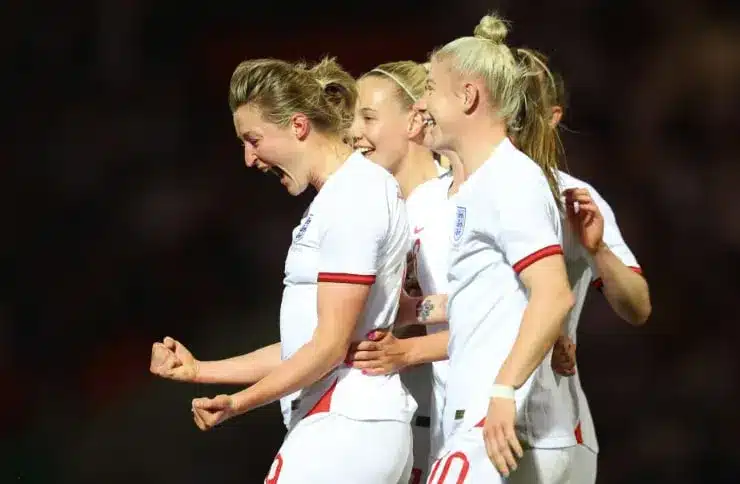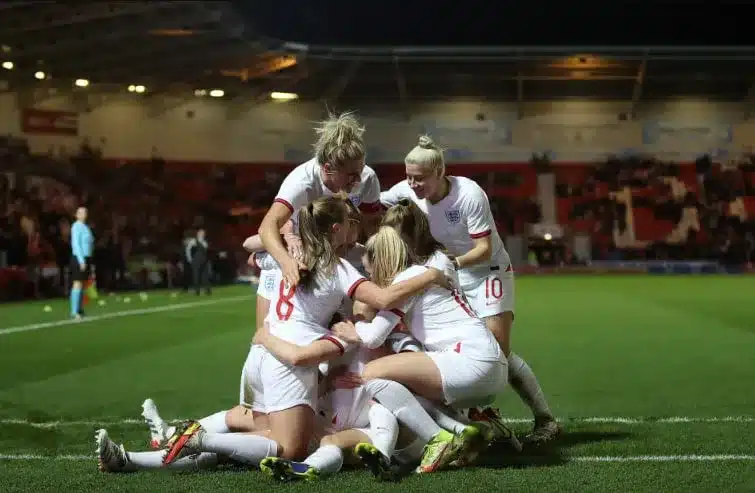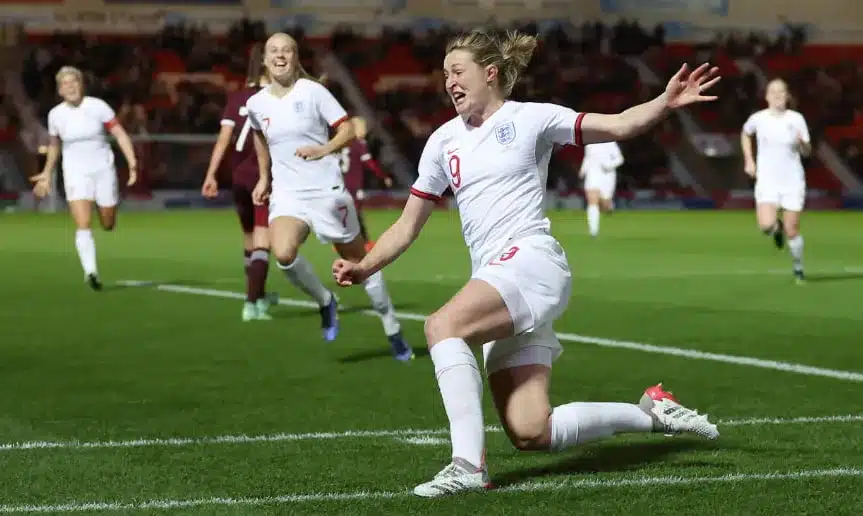The England Women‘s national team made history with a staggering 20-0 victory over Latvia in their latest World Cup qualifier, but head coach Sarina Wiegman raised concerns about whether such lopsided results are beneficial for the growth of women’s football.
This record-breaking win saw Ellen White net a hat-trick, surpassing Kelly Smith’s all-time England Women’s scoring record with her 48th international goal. Manchester City teammates Beth Mead and Alessia Russo also secured hat-tricks, while Lauren Hemp stole the spotlight with four goals.
Despite England’s dominance in their qualifying group—remaining unbeaten and scoring double-digits in three matches—Wiegman questioned the long-term impact of such one-sided games on the sport’s development.

Is the Gap in Women’s Football Growing Too Wide?
Wiegman’s post-match comments highlighted a growing issue in international women’s football: the widening gap between elite and developing nations.
“Of course, you want competitive games, and these are not competitive,” Wiegman stated. “We want well-developed countries to keep improving, but we also need to support those that aren’t as far along. I don’t think 20-0 is good for anyone’s development.”
Her concerns echo a broader trend in women’s football, where nations like England, France, Spain, and Norway have repeatedly posted double-digit victories in qualifiers.
The Role of FIFA and UEFA
The disparity raises questions about how governing bodies can ensure balanced competition while still allowing smaller nations the opportunity to qualify for major tournaments.
According to Jaya9 football analyst James Carter:
“The professionalization of women’s football in top-tier nations has accelerated player development, leaving amateur or semi-pro teams at a severe disadvantage. Without structural changes, these mismatches will only become more frequent.”
UEFA and FIFA have increased funding for women’s football development programs, but critics argue that financial support alone isn’t enough. The rapid rise of full-time training academies and elite youth systems in countries like England means that emerging football nations struggle to keep pace.

The Commercial Impact of One-Sided Matches
Beyond development concerns, lopsided matches risk alienating fans. Broadcasters and sponsors prefer competitive fixtures, and repeated blowouts could reduce viewer engagement.
As Jaya9 sports economist Dr. Lisa Morgan notes:
“If international breaks become predictable, fans may lose interest. Governing bodies must find ways to maintain excitement while ensuring fair competition.”
Potential solutions include:
- Enhanced Financial Support: More direct investment in grassroots and youth programs for developing nations.
- Tiered Qualification: Introducing preliminary rounds to avoid extreme mismatches in early stages.
- Regional Development Leagues: Encouraging smaller nations to compete among themselves before facing elite teams.
Conclusion: A Call for Structural Change
England’s 20-0 win over Latvia may have been historic, but it underscores a critical challenge in women’s football. While dominant nations continue to thrive, the sport’s long-term growth depends on closing the competitive gap.
Jaya9 will continue tracking this evolving debate—share your thoughts in the comments below! Should FIFA and UEFA implement stricter regulations, or is this just part of the natural progression in women’s football?
Follow Jaya9 for more in-depth sports analysis and breaking news!

